Cast of Characters
http://www.richmondcarotary.org/rotary-calendar/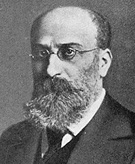 Adler, Guido (1855–1941)
Adler, Guido (1855–1941)
Guido Adler, who is considered the father of modern musicology. In 1898, after studying at the University of Vienna and the Konservatorium of the Gesellschaft der Musikfreunde, where he was a student of Bruckner, he began teaching at the university. Here he founded, and then until 1938 headed, the Musikhistorisches Institut (music-historical institute). After the Anschluss of 1938 he was terminated from his position. Three years later, after his death, his daughter, Melanie, was deported to Terezin; she did not survive the Nazi years. Adler’s son escaped Austria and eventually donated what he had been able to save of Adler’s estate to the University of Georgia in Athens.
Karl Weigl completed his PhD under Adler, who subsequently recommended him to Gustav Mahler, then director of the Vienna Opera. In his capacity as general editor of the monumental series Denkmäler der Tonkunst in Österreich, which he had initiated, Adler asked Weigl to edit volume 67, Emanuel Aloys Förster Kammermusik (1928).
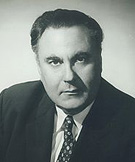 Adler, Kurt (1907–1977)
Adler, Kurt (1907–1977)
Kurt Adler trained as a musician and conductor in the 1920s in Vienna, where he studied with Weigl and at the university, and in Berlin. After stints as conductor in Berlin, Prague, Kiev, and Stalingrad, Adler in 1938 took the same boat into exile as the Weigl family, the SS Statendam. In 1943 he began conducting at the Metropolitan Opera and two years later was named chorus master, a position he retained until 1973. In the dedication of his 1965 The Art of Accompanying and Coaching Adler included Weigl among the ten names of “teachers who molded my musical culture during my formative years.” In 1967 he took a leading role in the founding of the Karl Weigl Memorial Fund at the Mannes College of Music. For his recollections of Weigl, see further readings.
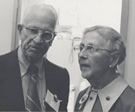 Arnett, John (1989–1985) and Katherine (Kitty) McCollins (1894–1984)
Arnett, John (1989–1985) and Katherine (Kitty) McCollins (1894–1984)
John and Kitty Arnett were prominent Quakers in Germantown, Philadelphia; they lived in what is known as the George W. Emlen House or the Arnett House (6200 Ardleigh Street), today part of the Awbury Arboretum. John Arnett, a physician, and Kitty Arnett, a committed activist in the peace movement, had three children—Edward (Ned), Alice, and Jack Arnett. John Weigl lived with the Arnett family during the years he attended the Germantown Friends School, from fall 1939 to spring 1943.
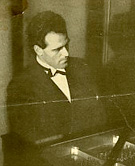 Bacon, Ernst (1898–1990)
Bacon, Ernst (1898–1990)
Ernst Bacon had a successful and varied career as composer, teacher, and arts administrator. In addition to founding the Carmel Bach Festival and for several years directing the San Francisco Federal Music Project he taught at a number of colleges and universities. In 1932 he was awarded the Pulitzer Award for his Symphony in D Minor, and he received two Guggenheim fellowships.
Bacon studied with Karl Weigl in the mid-1920s and in later years returned several times to Vienna to visit the Weigls and join them on vacation. After the 1938 Anschluss he was one of their most committed supporters. It was on his urging that Weigl while still in Vienna produced his first publicity flier, which he sent to acquaintances and prospective employers in the United States.
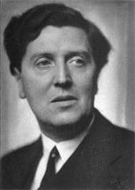 Berg, Alban (1885–1935)
Berg, Alban (1885–1935)
Alban Berg was a lifelong Vienna resident, just as Weigl undoubtedly would have been had he not been forced into exile. Both Berg and Weigl were Dutz friends of Schoenberg, but though they moved in some of the same circles and their paths often crossed, they were never close friends. On 23 December 1935 Weigl noted Berg’s death in his journal.
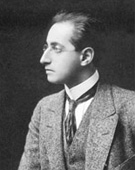 Bodanzky, Artur (1877–1939)
Bodanzky, Artur (1877–1939)
Artur Bodanzky, who, like Weigl, studied with Alexander Zemlinsky and at the Konservatorium of the Gesellschaft der Musikfreunde, began his career as a violinist in the Vienna Court Opera orchestra. Soon after, in 1900, he embarked on a successful conducting career in Europe. In 1914 he was appointed chief conductor for German repertoire at the Metropolitan Opera, where he remained until his death. Bodanzky was a helpful contact during the Weigls’ first months in the United States.
 Busch, Adolf (1891-1952)
Busch, Adolf (1891-1952)
Adolf Busch, performer, composer, and teacher, began his career as a violinist in the Vienna Konzertverein Orchestra but soon established a successful career as solo performer and first violinist of the string quartet he founded. Within months of Hitler’s rise to power, Busch cancelled a tour and refused to perform any longer in Germany; he and his family went into exile first in Switzerland, then in the United States. In the last years of his life he cofounded the Marlboro Festival with his friend Rudolf Serkin.
Weigl, whose friendship with Busch began in the 1910s, thought highly of Busch as a composer as well as a performer; while composing his Violin Concerto he consulted Busch not just in technical matters but also for his composer’s expertise.
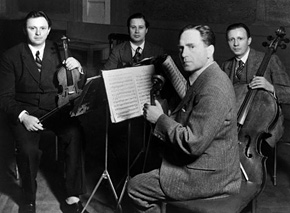 Busch Quartet
Busch Quartet
Adolf Busch founded this legendary string quartet in 1913. Initially named the Wiener Konzertvereins-Quartett (and also known as the Konzerthaus-Quartett), the group had to disband or suspend activities several times; after World War I it renamed itself the Busch Quartet. Adolf Busch was primarius (first violin) throughout its existence, until his death in 1952 put a final end to the group. The other members changed several times over the years: second violin was held, in turn, by Fritz Rothschild (1913), Karl Reitz (1919–1921), Gösta Andreasson (1921–1945), Ernest Drucker (1946, and Bruno Straumann (1946–1952; viola by Karl Doktor (1913), Emil Bohnke (1919–1921), again Karl Doktor (1921–1945), and Hugo Gottesmann (1946–1952); and cello by Paul Grümmer (1913–1930) and Hermann Busch (1930–1952).
The Busch Quartet frequently performed Weigl works, including the String Quartet No. 5, which Weigl completed in 1933 and dedicated to the quartet; at the premiere of that work the group consisted of Busch, Gösta Andreasson, Karl Doktor, and Busch’s brother, Hermann Busch.
Byk, Richard (dates to be determined)
The Polish-American pianist and composer Richard Byk completed his musical studies in Vienna, where he was a student of Leschetizky. He subsequently established a successful international concertizing career, making his U.S. debut in New York in 1925. In the 1930s, after being forced into exile and finding refuge in the United States, Byk settled in Southern California. Here he became known above all for his inspired teaching and for incorporating indigenous American themes in compositions such as the Fantasia for piano.
Byk was the dedicatee of Weigl’s Night Fantasies, composed 1911; the dedication reads “Richard Byk freundschaftlich zugeeignet.” Byk’s premiere performance in Vienna in October 1921 may have prompted F.E.C. Leuckart to publish the work the following year.
Cadbury, Emma (1875–1965)
Emma Cadbury, born into the American branch of the Cadbury family, was a leading member of the American Friends Society. She committed her life to the international aspect of Friends' work and after the 1938 Anschluss headed the Vienna Quaker Center, helping Jews escape Europe. Cadbury advised the Weigls in their six-month-long pursuit of legal exit papers from Vienna and provided a number of valuable contacts for their transition to life in the United States. For years after the Weigls remained in friendly contact with Cadbury.
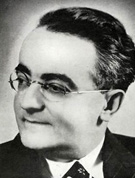 Carner, Mosco (1904–1985)
Carner, Mosco (1904–1985)
The Austrian-born Mosco Carner (originally Cohen) had a multifaceted career as conductor, pianist, arranger, music historian, critic, and radio host. After completing his musical studies in Vienna at the Neues Wiener Konservatorium and the university (where he earned his PhD under Guido Adler), he began his career as a conductor. In 1933 he left Germany, taking advantage of a tourist visa to England, and began working as a music critic for Musical Times, Monthly Musical Record, Schweizerische Musikzeitschrift, and, until 1938, Vienna’s Neue Freie Presse. In 1938 he started a long affiliation with the BBC, at the same time gradually returning to conducting, performing, and working for contemporary music organizations. He is remembered today for a number of important monographs.
Carner’s connection with Weigl began during his student years, 1923–1926, at the Neues Wiener Konservatorium, where Weigl was on the faculty 1918–1925.
Churchill, Dr. Frank S. (1864–1946)
The family of Dr. Frank and Lucretia Churchill were among the Weigl family’s earliest friends. As of 1939 the Weigls spent a number of summers at the Bass River Churchill home on Cape Cod. Dr. Churchill, who had received his MD from Harvard University and specialized in pediatrics, had practiced in Chicago for more than thirty years, where in addition to private practice and various institutional posts he also served as physician for the Juvenile Court and was a member of the Juvenile Psychopathic Institute and the Infant Welfare Society. After his military service in 1919 he returned to his native Milton, Massachusetts, and after retirement he and his family moved to Bass River, Yarmouth, Cape Cod, where he spent his last years.
Doktor, Karl (1885–1949)
Karl Doktor, the Viennese violist, graduated from the Konservatorium of the Gesellschaft der Musikfreunde in 1903, concurrently with Weigl, and joined the Konzertverein Orchestra as a violinist under Ferdinand Löwe. In 1913 he became one of the founding members of what eventually became the Busch Quartet. After the 1938 Anschluss Doktor fled first to London, then to the United States, where he joined the Columbia Orchestra and then briefly the Pittsburgh Symphony before rejoining the Busch Quartet in 1941. He was not reunited with his wife and son, Paul, who had been stranded in Switzerland during the war, until 1947.
Doktor and Weigl were friends from their student days on. Doktor was a member of the Wiener Konzervereins-Quartett when that group gave the premiere of Weigl’s String Quartet No. 3 on 28 November 1919. Fifteen years later, on 23 November 1934, he was with the Busch Quartet when they gave the premiere of Weigl’s String Quartet No. 5.
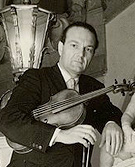 Doktor, Paul (1919–1989)
Doktor, Paul (1919–1989)
Paul Doktor was the son of Georgine and Karl Doktor; his mother was a singer and pianist, his father the noted violist. He, too, became a violist, as well as a conductor. After accompanying his parents into exile in 1938 he and his mother were trapped in Switzerland, unable to procure immigration papers until several years after the end of World War II. During this time he served as solo violist with the Lucerne Symphony Orchestra. In 1947 he was finally able to leave Switzerland and move to the United States. Here he entered on a successful solo career and became a valued faculty member at the Juilliard School, Mannes College of Music, and New York University. He often performed Weigl’s Viola Sonata, initially with the composer at the piano; after Weigl’s death he played the piece with Bob Henderson, Nadia Reisenberg, Arthur Balsam, and others.

Foss, Lukas (1922–2009)
Lukas Foss, born in Berlin as Lukas Fuchs, was a musical child prodigy. In 1933 his parents went into exile, first to Paris and then, in 1937, to the United States. Here Foss studied at the Curtis Institute. His professional career began with a position as pianist for the Boston Symphony, 1944–1950; in 1945 he was the youngest composer to be awarded a Guggenheim Fellowship, and he went on to become a renowned composer, teacher, and conductor. In some sources Foss is said to have studied with Karl Weigl, but this has not been documented, nor is it known when the two men might first have become acquainted. Foss served as witness when Weigl joined the American Composers Alliance in 1941.
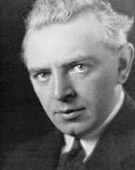 Friedman, Ignaz (1882–1948)
Friedman, Ignaz (1882–1948)
The internationally renowned pianist Ignaz Friedman, whose career began as a child prodigy, studied in Vienna and Berlin. Taking advantage of an Australian concert tour, he left Germany in 1941 and settled in Sydney for the duration of the war.
Friedman and Karl Weigl probably met during their university years. Friedman gave the premiere of Weigl’s Piano Concerto under George Szell in Prague on 29 October 1931. The work is dedicated to him as “dem großen Künstler und guten Kameraden” (the great artist and good comrade).
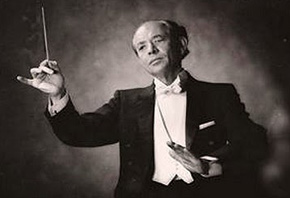 Fuchs, Peter Paul (1916–2007)
Fuchs, Peter Paul (1916–2007)
The Vienna-born conductor Peter Paul Fuchs studied composition with Karl Weigl, as well as conducting with Weingartner and Krips. After engagements at the Vienna Volksoper and the Deutsche Oper in Brno he went into exile in the United States in 1938. He conducted at the San Francisco and New York Metropolitan Operas, founded Opera for Everyone, and taught at Louisiana State University in Baton Rouge from 1950 to 1976; as of 1960 he also led the Baton Rouge Symphony Orchestra.
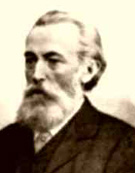 Fuchs, Robert (1847–1927)
Fuchs, Robert (1847–1927)
Robert Fuchs is the link between the generation of his teachers Anton Bruckner and Felix Otto Dessoff and those of his illustrious students Gustav Mahler, Erich Wolfgang Korngold, Franz Schmidt, Franz Schreker, and Alexander Zemlinsky. Karl Weigl studied with Fuchs 1900–1902 at the Konservatorium für Musik und darstellende Kunst der Gesellschaft der Musikfreunde in Vienna.
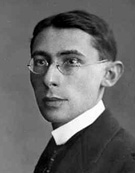 Gál, Hans (1890–1987)
Gál, Hans (1890–1987)
Hans Gál, who was born in Brno, studied composition with Eusebius Mandyzewski; piano, like Weigl, with Richard Robert; and music history at the university with Guido Adler. In 1909 he started teaching at the newly founded Neues Vienna Konservatorium, and from 1919 to 1929 he was Lektor for harmony and counterpoint at the University of Vienna, the position once held by Anton Bruckner. In 1929 he relocated to Germany to take the prestigious post as director of music at the Hochschule in Mainz. Dismissed in 1933 when the new Law for the Reestablishment of the Civil Service forced the expulsion of Jews from all public institutions in Germany, he returned to Vienna. After the 1938 Anschluss he and his family were successful in emigrating to England, but in 1940 he spent many painful months interned in Huyton outside Liverpool and in Camp Douglas on the Isle of Man. After the war he relocated to Scotland, where he became a revered teacher at the University of Edinburgh 1945–1965. He left a corpus of approximately 140 published works, over half of which were composed in Britain.
During his years in Vienna Gál several times performed choral works by Weigl, and he suggested that Weigl succeed him as Lektor at the University of Vienna in 1933.
Heim, Emmy (1885–1954)
Emmy Heim, Viennese soprano, performed Weigl songs in the 1910s (28 March 1914)
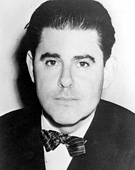
Hirschman, Ira Arthur (1901–1989)
Ira Hirschmann was a New York business executive, pioneer in radio broadcasts, patron of the arts, and committed anti-Nazi crusader. He held vice presidential positions at Saks Fifth Avenue 1935–1938 and Bloomingdale's 1936–1946, and he initiated and developed WOR radio station as well as founding the New Friends of Music, a nonprofit chamber music organization that for sixteen years hosted chamber music concerts in Town Hall. Among the European Jews he helped to safety were the families of Arnold Schoenberg and Karl Weigl. In 1943 and 1944, while serving as President Roosevelt’s special envoy in Turkey, he worked for the escape of Jews from the Nazi-occupied Balkan states.
Karl Weigl dedicated his 1939 Piano Trio to Hirschmann.
Hoffmann, Rudolf Stephan (1878–1939[?])
Rudolf Stephan Hoffmann was a physician, composer, librettist, writer, and music critic. He studied piano and music theory privately with Zemlinsky, probably during the same years as Weigl. After completing his medical studies Hoffmann settled on a career in music. He occasionally appeared as conductor with the Philharmonic Chorus founded by Franz Schreker and the Wiener Singakademie, and he wrote concert reviews for Der Merker, Musikblätter des Anbruch, and other journals, as well as well-received monographs on Franz Schreker (1921) and Erich Wolfgang Korngold (1922). Hoffmann went into exile in Palestine with his family in 1938 and died shortly after.
Hoffmann and Weigl, whose parents were well acquainted, must have become friends quite early in life. Over the years Hoffmann wrote several important articles on Weigl, which reveal a deep and empathetic knowledge of his friend’s musical works and character.
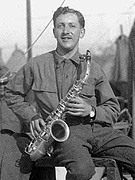 Jacobi, Frederick (1891–1952)
Jacobi, Frederick (1891–1952)
The American composer and pedagogue Frederick Jacobi was one of the founders of the U.S. League of Composers in 1923, and he served on the American board of the International Society for Contemporary Music (ISCM) in the 1920s and 1930s. Jacobi’s early musical training was in piano with Paolo Gallico and Rafael Joseffy and in composition first with Rubin Goldmark, then with Paul Juon at the Berlin Hochschule für Musik, and later with Ernst Bloch in New York. For most of his professional life, 1936–1950, he taught composition at the Juilliard Graduate School. As a composer Jacobi became known for his use of native materials and American locales. When Jacobi died, Olin Downes, the dean of American music critics, wrote a moving tribute to him in the New York Times.
Weigl probably met Jacobi in Vienna in June 1932 when Jacobi attended the annual ISCM festival, held that year in Vienna. They corresponded sporadically after that, and Weigl occasionally sent Jacobi scores of his chamber music for possible performances in New York by the League of Composers and other groups. They remained in touch after the Weigls arrived in the United States; Jacobi’s widow participated in the 1967 founding of the Karl Weigl Memorial Fund at the Mannes College of Music.
Jones, Mary Hoxie
Mary Hoxie Jones, a member of the extended Cadbury family, joined the American Friends Society Committee (AFSC) in 1939 and, like her cousin Emma Cadbury, worked for Friends Centers in Europe.
In 1939, a few months after entering his American exile, Weigl set Mary Hoxie Jones’s poem “The Refugee”; he dedicated the song to the AFSC.
Maar, Antonie Bächer (1892–1942) and Oskar (ca. 1888–1953)
Antonie (Toni) Maar earned her PhD from the University of Vienna in geology and history. For many years she managed the library of the Vienna Volks-Bildungsverein and a Gymnasium teachers federation. She and Vally Weigl met as schoolgirls, and a voluminous correspondence attests to their lifelong close friendship. Vally and Karl married socialized regularly with the Maars during the Vienna years.
Toni Maar was Jewish but, like her husband, a devout Catholic. The Weigls tried strenuously to help the Maars emigrate; several times they found American citizens willing to sign affidavits for the couple, but the applications were not successful. Toni Maar committed suicide in 1942.
Oskar Maar was a well-known Germanist and pedagogue. He was not Jewish but in 1938 lost his position as the head of a Gymnasium in Vienna because he would not divorce his Jewish wife. Oskar Maar survived the Nazi years. When contact with the outside world again became possible after the war, he resumed a sporadic correspondence with Karl and Vally Weigl. He published a number of textbooks, including the widely used Lesebuch Weltliteratur (1949). In 1966 a street in Vienna’s twenty-third district (Mauer-Liesing) was renamed for him from Eckhartsaugasse to Maargasse.
 Mahler, Gustav (1860–1911)
Mahler, Gustav (1860–1911)
Gustav Mahler was one of Weigl’s earliest supporters. In 1904, during his tenure as director of the Vienna Court Opera, he hired Weigl as Korrepeitor, or vocal coach. In 1948 Weigl wrote, “Even today, I consider the years I worked under Mahler as the most instructive period of my life.”
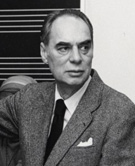 Mann, Alfred (1917– 2006)
Mann, Alfred (1917– 2006)
Alfred Mann, who was born in Hamburg to Edith Weiss-Mann, the harpsichordist and early music pioneer, and the portrait artist Wilhelm Mann, received his early musical training in Berlin and Milan before being forced into exile in late 1938. In the United States he continued his musical studies at Curtis Institute and after military service in the U.S. army went on to get his PhD at Columbia University under the guidance of Paul Henry Lang. In 1947 Mann founded the music department at Rutgers University, and he went on to teach there for more than thirty years before retiring and starting a new teaching career at the Eastman School of Music. In addition to his academic activities Mann was throughout his life active as a performer and conductor; his editions of 17th- and 18th-century works grew directly out of his understanding of performance need.
Mann’s first teaching job at the Germantown Friends School, where the Weigls’ son John was enrolled, may have led to his acquaintance with Karl Weigl.
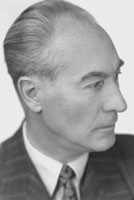 Marek, Czeslaw (1891-1985)
Marek, Czeslaw (1891-1985)
The Polish-Swiss composer, teacher, and pianist Czeslaw Marek studied in Vienna with Theodor Leschetizky and Karl Weigl; he later also studied with Hans Pfitzner. In 1915 he settled in Zurich, where after World War I he established a successful career as internationally concertizing pianist, pedagogue, and composer. In the 1940s he gave up both performing and composing, to devote himself entirely to teaching. His papers, the bulk of which are at the Zentralbibliothek Zurich, include a substantial collection of letters from Karl Weigl.
Mason, Carola and Samuel
Carola and Samuel Mason were the second Quaker family who took John Weigl into their home after the Weigl family arrived in New York in October 1938; he remained with them from late December 1938 through the end of that school year and into the summer of 1939. The Mason children—Barbara, Danny, and Sammy—remained lifelong friends of the Weigls.
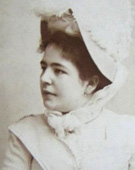 Pazeller, Elisabeth Paula Helene (1881–1943)
Pazeller, Elisabeth Paula Helene (1881–1943)
Elsa Pazeller, the daughter of Jakob Pazeller, a mayor of Baden, and Elisabeth Pichler, was a singer and voice teacher. Between 1916 and 1918 she appeared several times at the Vienna Opera, but she was known above all as a persuasive interpreter of contemporary music. She was married to Karl Weigl 1910–1913 and the mother of their daughter Maria, later Maria Piers. Pazeller, a devout Catholic, remained in Vienna after the 1938 Anschluss, but as she was closely associated with Jewish musicians she endured great hardships under Nazi rule. Contact with her daughter in Chicago was cut off after the United States declared war in 1941; news of her death reached her daughter only months later.
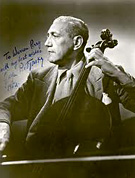 Piatigorsky, Ernst Gregor (1903–1976)
Piatigorsky, Ernst Gregor (1903–1976)
Grigoriy Pavlovich Piatigorsky was born in Ukraine, studied briefly in Berlin and Leipzig, and became principal cellist of the Berlin Philharmonic, which launched his illustrious international career. After the Nazi occupation of France he and his family were able to emigrate to the United States. 1941–1949 he was head of the cello department at the Curtis Institute of Music in Philadelphia; he also taught at Tanglewood, Boston University, and the University of Southern California (USC), where he remained until his death. USC established the Piatigorsky Chair of Violoncello in 1974 in his honor.
Weigl may have known Piatigorsky in Europe, or he may have met him at Boston University, where Piatigorsky, too, taught in the 1940s. Nothing is known of a personal connection between the two artists beyond the fact that Weigl dedicated the second movement of his Cello Concerto (composed 1934) to Piatigorsky.
Piers, Gerhart (19??–1978)
Gerhart Piers earned his MD in Vienna in the early 1930s and specialized in psychoanalysis. Soon after the 1938 Anschluss, in July 1913, he and Maria Weigl left Vienna and spent the following year in Switzerland waiting for permission to enter the United States. Once there they settled in Chicago. In 1956 Piers succeeded Franz Alexander, the founding director of the Chicago Institute for Psychoanalysis, and remained in that position for seventeen years. Under his tenure, programs for child and adolescent therapies, as well as teacher training? were established. Today he is best known for his essay “Shame and Guilt: A Psychoanalytic Study,” which was published jointly with Milton Singer as Shame and Guilt: A Psychoanalytic and a Cultural Study (1953).
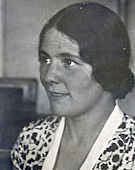
Piers, Maria Weigl (1911–1997)
Maria Weigl Piers was the daughter of Karl Weigl and his first wife, the singer Elsa Pazeller. After the divorce of her parents, Maria Piers grew up with her mother but spent many weekends and summer months with her father. She earned her doctorate from the University of Vienna in anthropology and psychology. A few months after the 1938 Anschluss she and Gerhart Piers left Vienna; while waiting for immigration papers she did postgraduate work at the University of Basel. Upon reaching the United States in August 1939 they settled in Chicago, where she taught developmental psychology at the Chicago Medical School, University of Illinois, Chicago Institute of Psychoanalysis, and University of Chicago. She became known as an authority on child psychology. In the 1960s she founded and became dean of the Loyola University–affiliated Chicago Institute for the Education of Young Children, to which Erik Erikson later lent his name and support. Her many books include Infanticide (Norton, 1989), Growing Up with Children (Quadrangle, 1966), and The Gift of Play (Walker, 1980).
Robert, Richard (1861–1924)
Richard Robert (originally Robert Spitzer) studied at the Konservatorium der Gesellschaft der Musikfreunde and eventually became president of the Vienna Tonkünstler-Verein. He was also for many years also affiliated with the Neues Wiener Konservatorium, founded in 1909, and he was active as a composer and music critic, editing Die Musikalische Rundschau 1885–1891 and later reviewing concerts for the Wiener Sonn- u. Montags-Zeitung and Illustriertes Wiener Extrablatt. Above all Robert was one of Vienna’s premier piano pedagogues. Among his students were Hans Gál, Wilhelm Groß, Clara Haskill, Alfred Rosé, Rudolf Schwarz, Rudolf Serkin, and George Szell. Vally Weigl, too, studied with him and then for several years served as his assistant.
Roger, Kurt (1895–1966)
The Austrian composer and musicologist Kurt Roger studied composition with Karl Weigl in the 1910s; he also took a class with Arnold Schoenberg and in 1918 earned his PhD under Guido Adler. In 1933 he wrote an informational essay on Weigl for the Austrian Radio newsletter. After the Nazi Anschluss he fled first to London, then to the United States, where he lived until 1953 in New York.
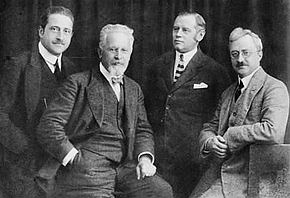 Rosé Quartet
Rosé Quartet
The prestigious Rosé Quartet was founded in 1882 by the Viennese violinist Arnold Rosé, Mahler’s brother-in-law, who remained primarius of the group for its entire existence. The second violinist was first Julius Egghard, then until 1905 Albert Bachrich, and after that Paul Fischer. The violist was initially Anton Loh, who was succeeded by Hugo von Steiner, Anton Ruzitska, and, finally in 1920, Max Handl. Eduard Rosé, Arnold’s brother, was the cellist of the ensemble at its founding but left after one season and was replaced by Reinhold Hummer, who was in turn replaced by Friedrich Buxbaum; in 1921 the cellist Anton Walter joined, but Buxbaum returned the following year. After being forced into exile in England at the age of seventy-five, Arnold Rosé resumed concertizing with a group still called the Rosé Quartet, though with two new members; this group gave its last performance in 1945.
The Rosé Quartet’s peak period is considered to have been between 1905 and 1920, when the group was composed of Rosé, Fischer, Ruzitska, and Buxbaum. That constellation of players premiered Karl Weigl’s String Sextet (in 1907) and String Quartet No. 3 (date undetermined), and throughout its Vienna period the group regularly included Weigl works in their season and touring concerts.
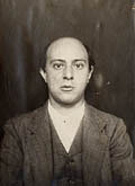 Schoenberg, Arnold (1874–1951)
Schoenberg, Arnold (1874–1951)
Arnold Schoenberg and Weigl became Dutz friends (using the intimate rather than formal “you”) in the early 1900s, possibly through their mutual friend Alexander Zemlinsky. In 1904–1905 they joined Zemlinsky in founding the short-lived Vereinigung schaffender Tonkünstler. Though their compositional paths soon diverged, Schoenberg always thought highly of Weigl and in the 1930s wrote, “I have always considered Dr. Weigl as one of the best composers of this older generation, one of those who continued the dignified Viennese Tradition.” After the 1938 Anschluss Schoenberg, who had left Europe in 1933, made earnest efforts to help Weigl find employment in the United States.
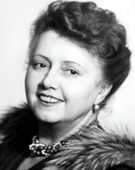 Schumann, Elisabeth (1888–1952)
Schumann, Elisabeth (1888–1952)
The German opera singer Elisabeth Schumann, a distinguished member of the Vienna Opera and Covent Garden, was also recognized as a superb lieder singer. In 1938 she went into exile in the United States, where she taught for many years at the Curtis Institute. Schumann gave the second performance of Karl Weigl’s Five Songs for soprano and string quartet in Vienna with the Rosé Quartet in November 1937 and a few weeks later sang the first London performance of the work, this time with the Brosa Quartet.
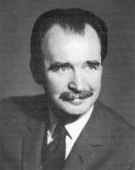 Sprague Smith, Carleton (1905–1994)
Sprague Smith, Carleton (1905–1994)
Born into a well-educated upper-class American family and educated in Paris and Harvard University, Carleton Sprague Smith enrolled at the University of Vienna in 1928; in 1930 he completed his doctorate there with a dissertation in German on the seventeenth-century Spanish Habsburgs. During this period he became well acquainted with Karl and Vally Weigl. After returning to the United States he headed the Music Division of the New York Public Library 1931–1959, in which capacity he was, in 1942, instrumental in arranging an editorial job for Weigl at the library; that position was funded in part by the Emergency Committee in Aid of Displaced Foreign Scholars, before whom Sprague Smith testified that Weigl had enjoyed an "enviable reputation" in Vienna and was possessed of “many talents."
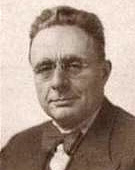
Stiedry, Fritz (1883–1968)
The Austrian conductor Fritz Stiedry was studying law at the University of Vienna when he came to the attention of Gustav Mahler, who in 1907 appointed him his assistant at the Vienna Opera. This launched his conducting career at opera houses in Kassel, Berlin, and elsewhere. Stiedry left Germany in 1933. After three years as principal conductor of the Leningrad Philharmonic Orchestra, 1934–1937, he left Leningrad for the United States, where Ira Hirschmann asked him to direct the newly founded New Friends of Music Orchestra in New York; under his leadership the group performed long neglected works by Bach, Haydn, and Mozart, as well as premiering Schoenberg's Chamber Symphony No. 2. After the war Stiedry returned to opera, conducting the Lyric Opera of Chicago and the Metropolitan Opera of New York.
Stiedry and Weigl knew each other well in Vienna, and Stiedry, by then already entrenched in New York, was helpful to the Weigls when they arrived in the United States in October 1938.
Stolper, Antonie Kassowitz (1890-1988)
The economist Antonie (Toni) Stolper was one of the first friends to whom Karl Weigl wrote on the day after the 1938 Anschluss, and she was of great help to the Weigls in acquiring their immigration papers to the United States and during the first months of transition in New York. She and her husband, Gustav Stolper, had emigrated to the United States in 1933, after which Toni Stolper worked for SelfHelp for Emigrés, the American Council for Émigrés in the Professions, and other émigré resettlement agencies. Weigl's friendship with Toni and Gustav Stolper dates back at least to the mid-1920s; he may first have met them through Toni Stolper’s nephew, Karl Kassowitz, who studied with Weigl in Vienna and later also emigrated to the United States.
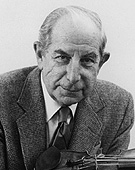
Totenberg, Roman (b. 1911)
The Polish-American violinist Roman Totenberg, a student of Carl Flesch at the Berlin Hochschule für Musik, made his debut at the age of twelve and established an international reputation early on. In 1933 he left Germany for Paris. Soon after he began coming to the United States on extended concert tours, and in 1938 he took advantage of one such tour to settle in New York. He continued his concertizing career without a break and later also taught at premier music schools on the East Coast, including Boston University.
Totenberg met the Weigls in October 1938 when, wishing to deepen his theoretical understanding of music, and upon Eduard Steuermann’s recommendation, he studied for several months with the newly arrived composer. Later Totenberg frequently performed Weigl’s Violin Sonata No. 2, often with the composer at the piano.
Wachtell, Samuel (dates unknown)
The American lawyer Samuel Wachtell is known for having helped the Austrian pianist Paul Wittgenstein to emigrate, and he donated his services to other Austrian refugees trying to make a new start in the United States. In a letter to Ira Hirschmann, dated 3 June 1942, he extolls the music of Karl Weigl after having attended one of Weigl’s private musicales.
Waldmann, Frederic (1903–1995)
Frederic Waldmann grew up in Vienna, where he studied piano privately with Richard Robert, later orchestration and conducting with George Szell, and composition with Karl Weigl. He began his professional career as a rehearsal pianist but soon started conducting as well. In 1935 he found refuge in England, where he was able to find working teaching and conducting; in 1941 he emigrated to New York. In 1947 he was appointed to the faculty of the Juilliard School of Music, where he remained for twenty years; in 1957 he founded the performing group Musica Aeterna.
According to a 20 April 1938 letter from Vally Weigl to a friend, Waldmann was a favorite student and good friend of Karl Weigl ("Lieblingsschüler meines Mannes und guter Freund").
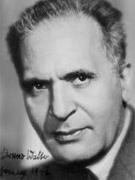 Walter, Bruno (1876-1962)
Walter, Bruno (1876-1962)
Bruno Walter, born in Berlin as Bruno Schlesinger, studied at the Stern’sche Konservatorium and began conducting throughout Europe in 1893. In 1911 he was appointed Generalmusikdirektor in Munich. His name became particularly associated with that of Mahler after he conducted the posthumous premieres of that composer’s Lied von der Erde and Symphony No. 9. After finding refuge in the United States in 1939 he settled in California.
Walter and Weigl knew each other in Vienna. After the 1938 Anschluss Walter provided several general recommendations that Weigl used in his attempts to reestablish a career in exile. Walter and Weigl do not seem, however, to have had much contact in later years.
Weigl, Ella Gabriele Stein (1859–1938)
Karl Weigl’s mother, Ella Gabriele Stein Weigl, was the daughter of a Fräulein Jaray, who afterwards married a Herr Stein, who adopted Ella. She is said to have been exceptionally musical and was, for her time, an unusually independent, strong-willed, as well as liberal woman. According to Maria Piers, she was a devoted grandmother; though perhaps not an easy mother-in-law, she became good friends with Maria Piers’s mother, Elsa Pazeller, after Elsa’s divorce from Karl Weigl.
On 23 September 1938, eight days after her son and his family left Vienna on their way into exile, and four days after the rule of the road in Vienna changed from left- to right-hand traffic, Ella Weigl was struck down by an automobile while crossing the Schottenring at early dusk, about the time a blackout exercise was beginning. Karl Weigl learned of the accident shortly before boarding the S.S. Statendam on 1 October; the telegram with news of her death awaited him when the boat docked in New York on 8 October 1938.
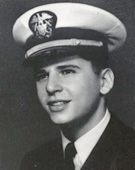 Weigl, John (1926–1982)
Weigl, John (1926–1982)
Born Wolfgang Johannes Weigl, and called Wolfi for the first twelve years of his life, John Weigl in 1939, probably at the urging of his parents, switched to the Americanized version of his middle name. American Quakers who helped the Weigls flee Austria, arranged that within days of the family’s arrival in New York on 8 October 1938 the twelve-year-old boy was sent to live with the family of Michael Martin in Roxbury, Connecticut. At the end of the year he moved in with the family of Samuel and Carola Mason, in Maryland, and from October 1939 to spring 1943, for the duration of his years in high school, he lived with the family of John and Katherine Arnett in Germantown, Pennsylvania.
After attending Columbia University and earning his PhD in Chemistry from the University of California in Berkeley, John Weigl worked for twenty years for the Xerox Corporation.
Weigl, Ludwig (1856–1902)
Ludwig Weigl, by profession a banker, was an enthusiastic and proficient amateur musician. He nurtured lifelong friendships with many professional and amateur musicians, including Alexander Zemlinsky, Arnold Schoenberg, and Paul and Lily Hoffmann, the parents of Rudolf Stephan Hoffmann.
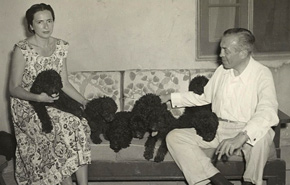
Wiley, John Cooper (1893–1967)
John C. Wiley was serving as chargé d'affaires ad interim and U.S. consul general at the time of the Nazi Anschluss of Austria in March 1938. He closed the consulate later that year and was sent to Estonia. He did more than most of the U.S. consular staff in Europe to try to help Jews leave Austria safely and gain entry into the United States.
Wiley, Irena Baruch (1906–1972)
The Polish-American artist Irena Wiley was with her husband, John C. Wiley, when he was chargé d'affaires and consul general in Vienna in 1938. She was instrumental in helping Jews under threat escape from Austria, including Sigmund Freud. Karl Weigl first contacted the U.S. embassy on 4 April 1938 and thereafter met with Irena Wiley several times. She brought the Weigls to the attention of Ira Hirschmann and persuaded him to serve as the Weigl family’s American sponsor.
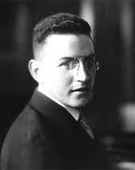 Wittgenstein, Paul (1887–1961)
Wittgenstein, Paul (1887–1961)
Paul Wittgenstein commissioned but never played Weigl’s Piano Concerto for the Left Hand, which Weigl completed in July 1924. The work was not premiered until 2002.
Yarnall, Elizabeth Biddle (1897–1975) and David Robert (1878–1967)
Elizabeth Biddle and David Robert Yarnall were American Quakers who worked with the Quaker Center in Vienna during the summer of 1938 to help Jews escape Europe. They met and became friends with Karl and Vally Weigl sometime during that time and remained in touch after the Weigls reached the United States.
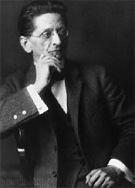 Zemlinsky, Alexander (1871–1942)
Zemlinsky, Alexander (1871–1942)
Alexander Zemlinsky was a friend of Karl Weigl’s parents, Ella and Ludwig Weigl, who asked him to give their son private music lessons. Initially a teacher, Zemlinsky later became a good friend of Weigl. When Hitler came to power in 1933 Zemlinsky, who had been engaged at the Kroll Opera in Berlin since 1927, left Germany and returned to Vienna, where he accepted a job as director of the Vienna Konzertorchester. Until the March 1938 Anschluss he and his wife, Louise, saw a good deal of the Weigls. Both families left Vienna on 15 September 1938, but the Zemlinskys then had to wait several months before obtaining visas for the United States.
Zemlinsky was sixty-seven years old when he arrived in New York, where he and his wife found an apartment on West 83rd Street, not far from the Weigls’ apartment on West 95th Street. In late 1941 Zemlinsky moved to New Jersey, where he died in March of the following year.
For larger pictures of many of the people shown here, please see Cast of Characters in the Images section of this website.